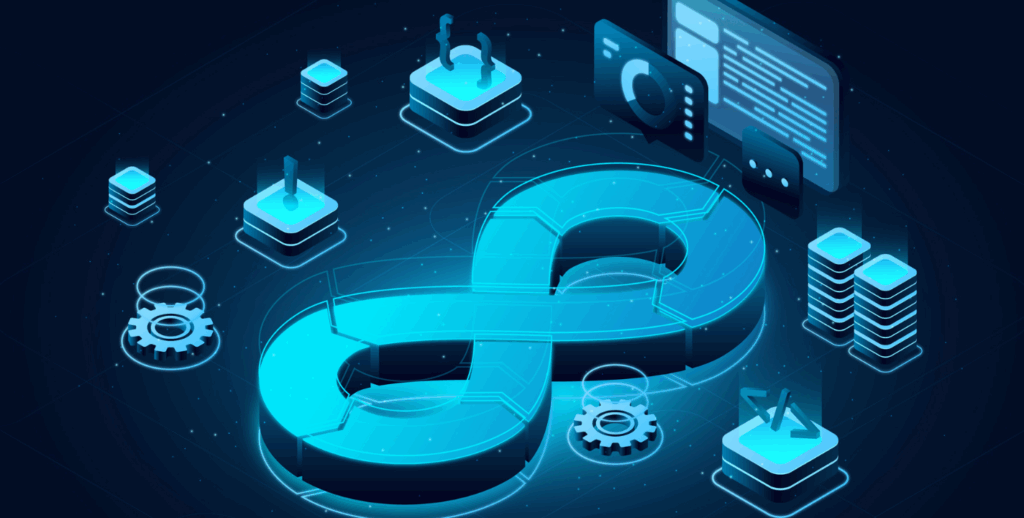Generative AI is transforming industries across the globe, offering businesses a fresh avenue for innovation. From healthcare and finance to retail and manufacturing, this powerful technology helps improve customer experiences, streamline operations, and drive efficiency. But how do you choose the right approach for implementing generative AI? In this blog, we’ll explore the key strategies that will ensure your AI journey is a success.
Generative AI and Its Impact
Generative AI, a subset of artificial intelligence and machine learning (AI & ML), can produce new data, insights, and content by learning from existing patterns. It encompasses applications such as Natural Language Processing (NLP), predictive analytics, and automated content generation, which can significantly benefit industries like healthcare, finance, retail, and manufacturing. By automating complex tasks and providing predictive insights, generative AI helps businesses stay competitive in a fast-evolving market.
Industry-Specific Applications of Generative AI
Generative AI is not a one-size-fits-all solution. Its applications vary depending on the industry:
- Healthcare: Generative AI can streamline processes such as medical image analysis, personalized treatment plans, and drug discovery. For instance, using NLP for analyzing medical reports can improve diagnosis accuracy and reduce human error.
- Finance: Financial institutions leverage generative AI for predictive analytics to detect fraud, assess credit risk, and automate customer service via chatbots. AI’s ability to process large datasets in real-time leads to faster and more accurate decision-making.
- Retail: AI-driven tools can enhance customer experiences through personalized product recommendations, demand forecasting, and dynamic pricing models. Retailers using AI & ML on AWS can benefit from scalable cloud infrastructure while delivering personalized shopping experiences.
- Manufacturing: Predictive maintenance, quality control, and supply chain optimization are common uses of generative AI in manufacturing. AI-based solutions can predict equipment failures, reducing downtime and improving operational efficiency.
Strategies for Implementing Generative AI
Cloud Migration for Cost and Compliance: One approach to integrating generative AI is to move existing applications to the cloud with minimal changes. This helps businesses achieve cost savings, meet compliance requirements, and maintain disaster recovery and business continuity without a complete overhaul.
Enhancing Applications with AI Capabilities: Another strategy involves updating existing applications to take full advantage of cloud-native features, such as natural language processing (NLP) or predictive analytics. This improves scalability, flexibility, and performance, while reducing operational costs.
Comprehensive Transformation for Long-Term Growth: For companies aiming for long-term growth, a complete redesign of data workflows may be necessary. This allows businesses to integrate advanced generative AI capabilities, perform complex data analysis, and ensure compliance with industry standards.
Key Considerations for Migrating to AI and Cloud
Before adopting generative AI, it’s important to assess your organization’s readiness. Here are some points to consider:
- Business Case: Establish a clear business case for migration. Identify the specific pain points generative AI can solve, such as improving customer experiences, enhancing decision-making, or reducing operational costs.
- Compliance Requirements: Certain industries, such as healthcare and finance, must adhere to strict regulatory standards. Ensure that your AI solution meets these compliance requirements during migration to the public cloud.
- Cost Savings: Migrating to AWS for AI-based applications provides significant cost savings. Cloud solutions allow you to pay only for the resources you use, scaling up or down as needed.
- Testing and Migration: A test migration should be performed to validate the success of rehosting, refactoring, or rearchitecting strategies. This ensures that cloud technologies and generative AI work smoothly together before fully committing to the solution.
Conclusion
Generative AI offers unparalleled potential for businesses to innovate and stay competitive. Whether you’re in healthcare, finance, retail, or manufacturing, adopting the right AI strategy is key to unlocking that potential. Start with the basics whether it’s rehosting, refactoring, or rearchitecting and leverage the power of AI & ML on AWS to future-proof your business.
FAQ’s
What is generative AI?
Generative AI refers to algorithms that can generate new content, insights, or data based on patterns they have learned from existing datasets. It is widely used for automation, data generation, and predictive analytics.
How can generative AI benefit my industry?
Generative AI applications vary across industries. For instance, it can enhance personalized medicine in healthcare, improve risk management in finance, optimize supply chains in manufacturing, and create dynamic pricing models in retail.
What is the best approach to implement AI in my business?
Choosing the right approach depends on your business goals and current infrastructure. Rehosting is suitable for companies seeking simple cloud migration, while refactoring or rearchitecting is ideal for businesses wanting to fully harness AI capabilities.
How does AWS support AI and ML applications?
AWS offers scalable cloud infrastructure and a variety of tools, including AI & ML services and cloud solutions for seamless integration of AI applications into existing systems, ensuring high performance, compliance, and cost-efficiency.



